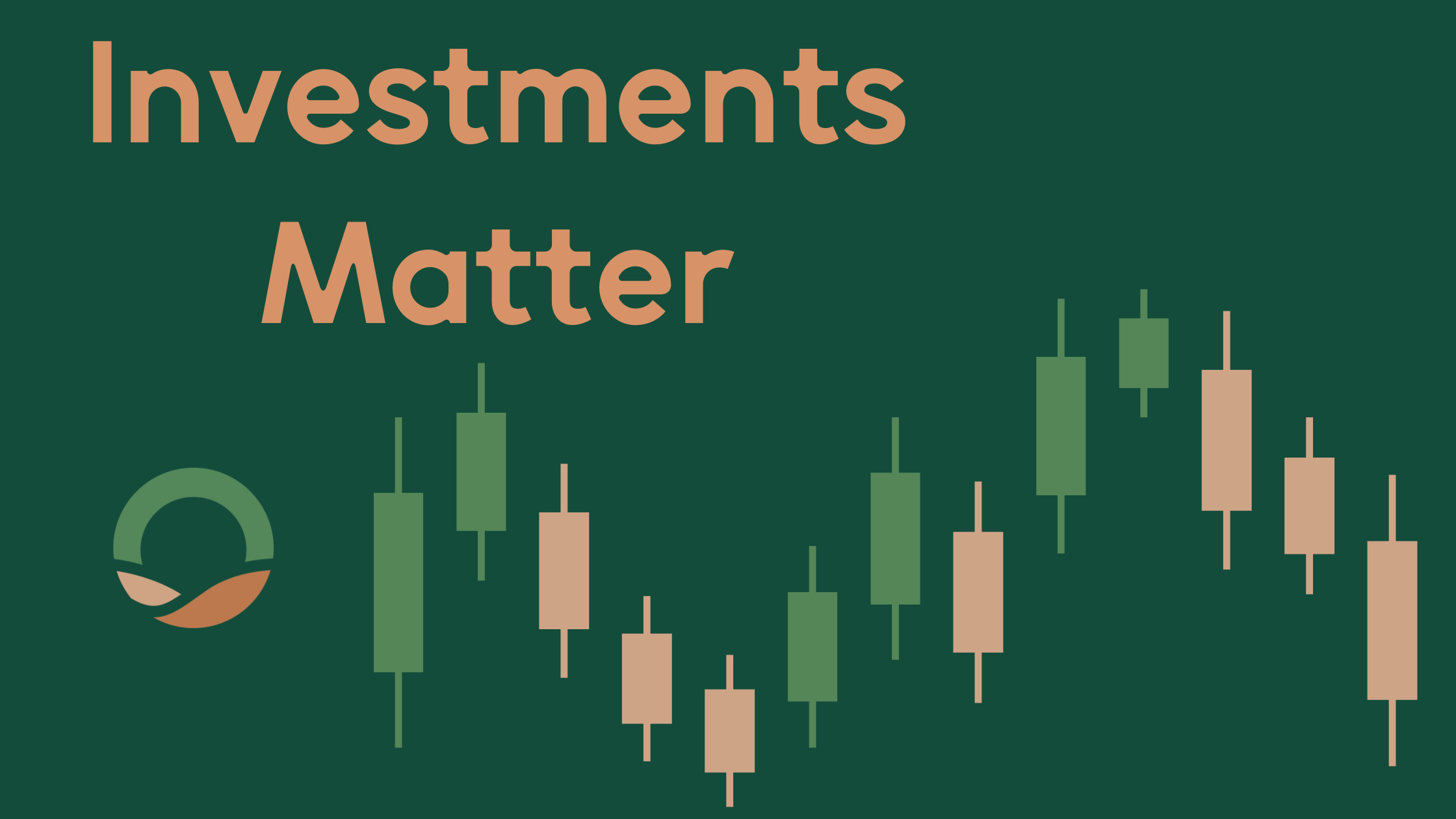Investments Matter
August 15, 2023

August 15, 2023
What you’re invested in is a very important factor in whether or not you’ll run out of money in your lifetime. Though there are more important things (tracking your standard of living, defining what “enough” means for you, saving money, choosing the right accounts, managing taxes, etc.) how you invest is right up there.
That’s probably why you’re working with me (or at least have considered working with me!). You want to make sure you’re invested right. This goes far beyond picking “good” investments. Tracking costs, managing risk with rebalancing, picking the right types of accounts, calculating the best withdrawal strategy, and most importantly making sure you cultivate the right behaviors have a far bigger impact on success than picking one stock, bond, or fund over another.
It’s a safe assumption to say that I think using a good financial advisor is a smart thing to do since that’s how I earn my living, but there are some data backing it up too. Vanguard, famous among DIY investors, has a research paper that outlines the value an advisor brings. You can read it here: Vanguard Advisor’s Alpha®.
Because I think most of an advisor’s value is NOT brought to the table in the form of investment selection, I probably don’t highlight it that often. That Vanguard report doesn’t even list asset allocation as a value-add in their report, and it says that working with a good advisor can add up to 3% or more in net returns!
Well I want to highlight it a little today, because getting help choosing investments is likely one of the main reasons you’re even looking in to using an advisor.
I recommend Dimensional Funds primarily because I like their research and their approach resonates with my beliefs about the markets. Dimensional targets a value premium in an effort to achieve higher expected returns.
“Valuation theory says that expected returns are driven by the prices investors pay and the cash flows they expect to receive. […] In particular, the valuation equation tells us that stocks with a lower relative price (“value” stocks), a smaller market capitalization, and higher profitability have higher expected returns than stocks with a higher relative price (“growth” stocks), larger market capitalization, and lower profitability.” (https://www.dimensional.com/us-en/insights/30-years-pursuing-the-value-premium-price-to-book-stands-the-test-of-time)
Dimensional senior researcher Mathieu Pellerin, PhD recently published a paper in May that showed that using core equity portfolios (versus market portfolios) may provide higher expected returns for retirement. Here’s the abstract of his paper”
“Broadly diversified equity portfolios that pursue the size, value, and profitability premiums can help investors enter retirement with more assets, better sustain their retirement spending, and pass on larger bequests. Our study finds that even moderate exposure to the premiums can significantly improve retirement outcomes. The results are applicable to the design of retirement asset allocations, target date funds, and managed accounts.” (Pellerin, April 21, 2021)
These strategies are in no way a guarantee of good or great returns, but they help increase confidence in the investment strategies that we’re employing to make sure you can use your money most effectively!
Join my newsletter and get biblical financial inspiration.
Demland Wealth LLC (“DW”) is a registered investment advisor offering advisory services in the State[s] of OH & IN and in other jurisdictions where exempted. Registration does not imply a certain level of skill or training.
This communication is for informational purposes only and is not intended as tax, accounting or legal advice, as an offer or solicitation of an offer to buy or sell, or as an endorsement of any company, security, fund, or other securities or non-securities offering. This communication should not be relied upon as the sole factor in an investment making decision.
Past performance is no indication of future results. Investment in securities involves significant risk and has the potential for partial or complete loss of funds invested. It should not be assumed that any recommendations made will be profitable or equal the performance noted in this publication.
The information herein is provided “AS IS” and without warranties of any kind either express or implied. To the fullest extent permissible pursuant to applicable laws, Demland Wealth LLC (referred to as “DW”) disclaims all warranties, express or implied, including, but not limited to, implied warranties of merchantability, non-infringement, and suitability for a particular purpose.
All opinions and estimates constitute DW’s judgement as of the date of this communication and are subject to change without notice. DW does not warrant that the information will be free from error. The information should not be relied upon for purposes of transacting securities or other investments. Your use of the information is at your sole risk. Under no circumstances shall DW be liable for any direct, indirect, special or consequential damages that result from the use of, or the inability to use, the information provided herein, even if DW or a DW authorized representative has been advised of the possibility of such damages. Information contained herein should not be considered a solicitation to buy, an offer to sell, or a recommendation of any security in any jurisdiction where such offer, solicitation, or recommendation would be unlawful or unauthorized.